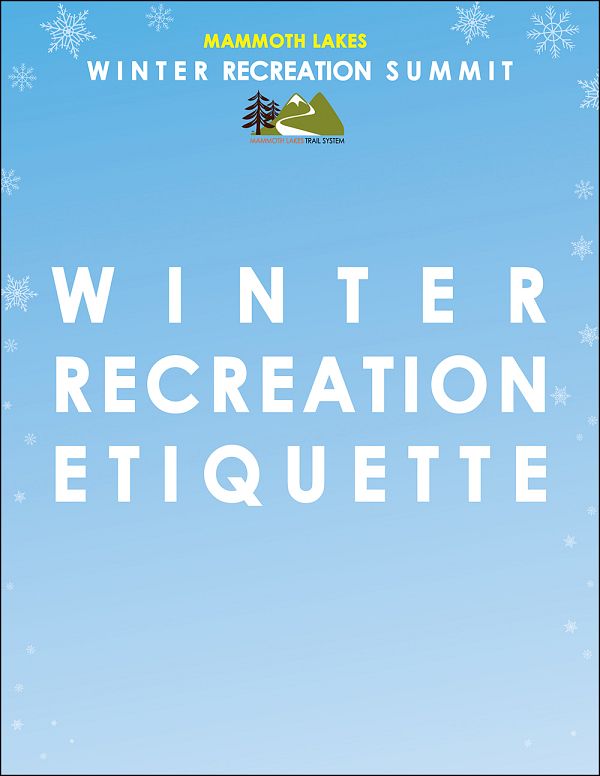WINTER RECREATION ETIQUETTE

PRESENTED BY: Mammoth Lakes Recreation
POWERPOINT PRESENTATION: Download here
SESSION NOTES: Download here
VIDEO DOCUMENTATION: Watch here
PROJECT PROPOSALS: Coming Soon!
YOUR INPUT: Click here to email us your thoughts!
Sharing the trails and enjoying the wide variety of winter recreation opportunities in the Mammoth Lakes region requires cooperation and an understanding of each other's unique experiences and concerns.
Mammoth Lakes Recreation will be looking for input from all user groups regarding best practices for winter recreation etiquette as part of a process of collecting information that can then be made available to both locals and visitors alike. Come help cultivate a diverse and respectful culture for shared trail and land use.
Check back soon for links to more information!
International Mountain Biking Association (IMBA) Winter Fat Biking Best Practices
Take a look at IMBA's guidelines for winter fat biking etiquette on multi-use winter trails.
Cross Country Ski Areas Association (CCSAA) website
See how the Cross Country Ski Areas Association (CCSAA) defines skiing etiquette.
Snowmobile Safety Awareness Program website
Check out the riding tips from the Snowmobile Safety Awareness Program website.
Inyo National Forest Wilderness guidlines
Learn about the Inyo National Forest's guidelines for wilderness use and permitting.
Wilderness.net - defines wilderness philosophy and evolution
Wilderness.net connecting federal employees, scientists, educators, and the public with their wilderness heritage.
California State Parks - Off-Highway Motor Vehicle Recreation
Laws and safety for OHV use as defined by the California State Parks.
The Sierra Web website
The Sierra Web's guide to the Eastern Sierra with links to regional land use rules and regulations.
Mono County Fire Restrictions
The BLM Bishop Field Office & Inyo National Forest's fire restrictions.
Sierra Bear Canister Guidelines
Sierra land managers are unified in their desire to protect black bears from the ill effects of obtaining human food, but specific regulations vary between different parks and forests. Currently, each management area decides which food storage techniques and products are allowed in their area.

